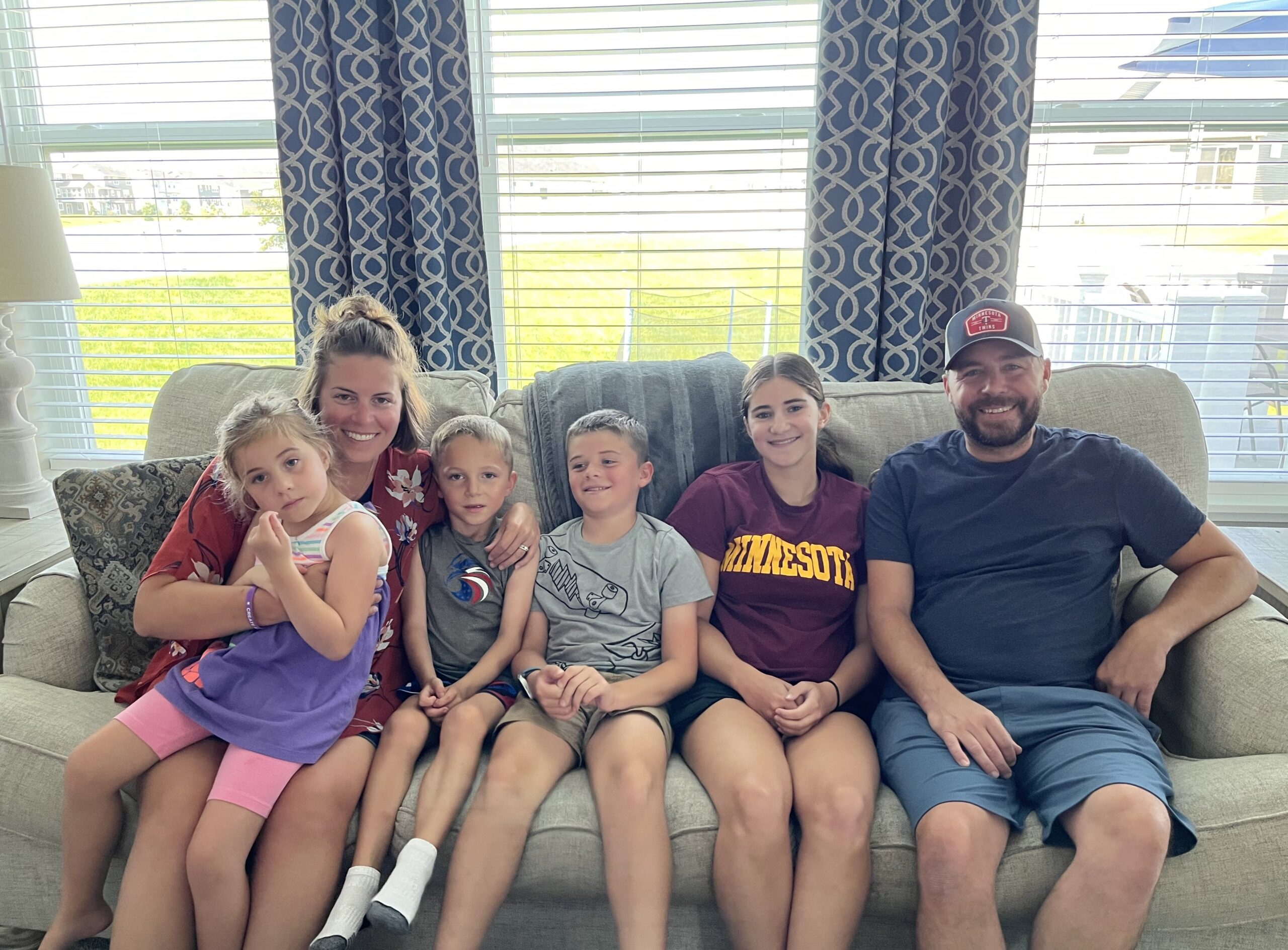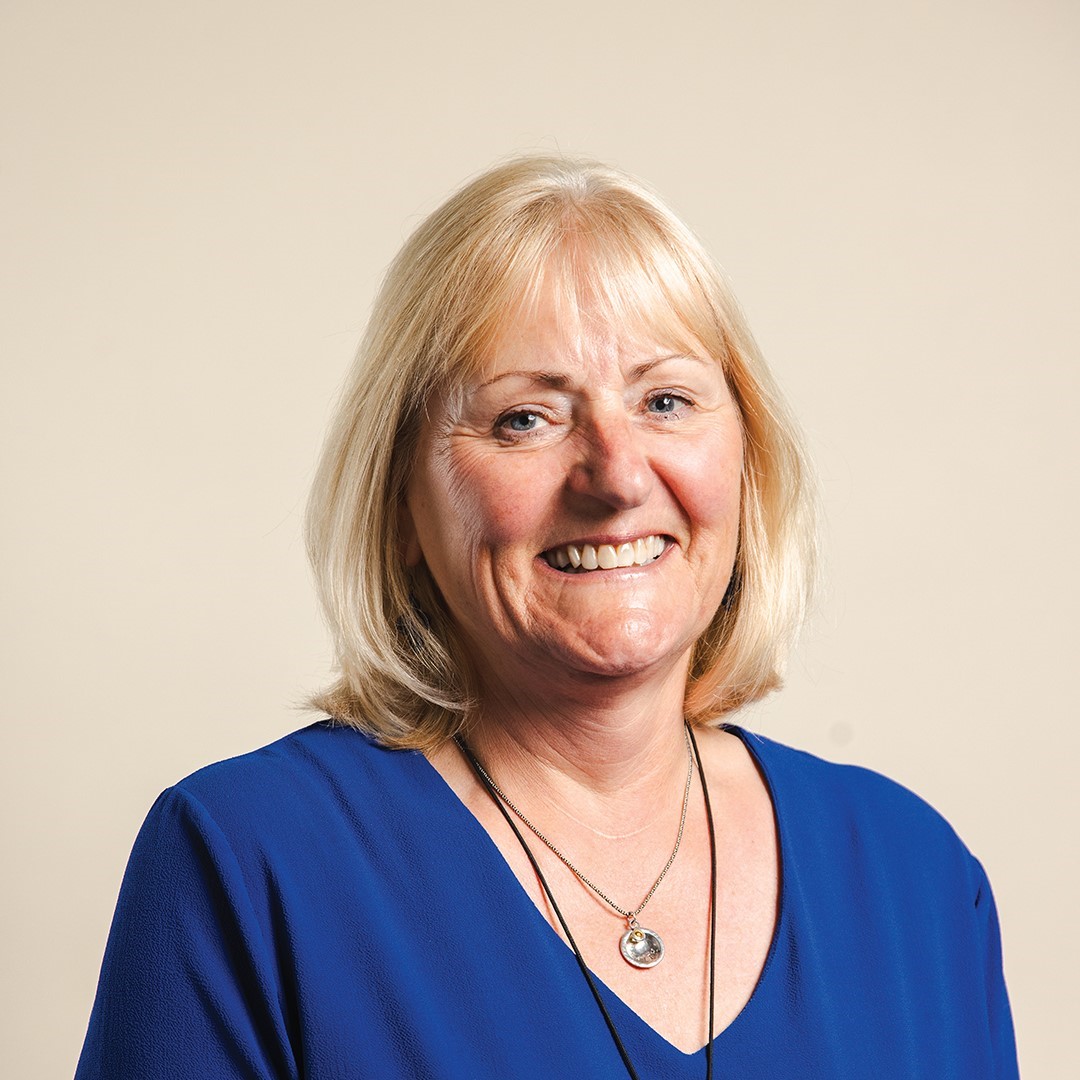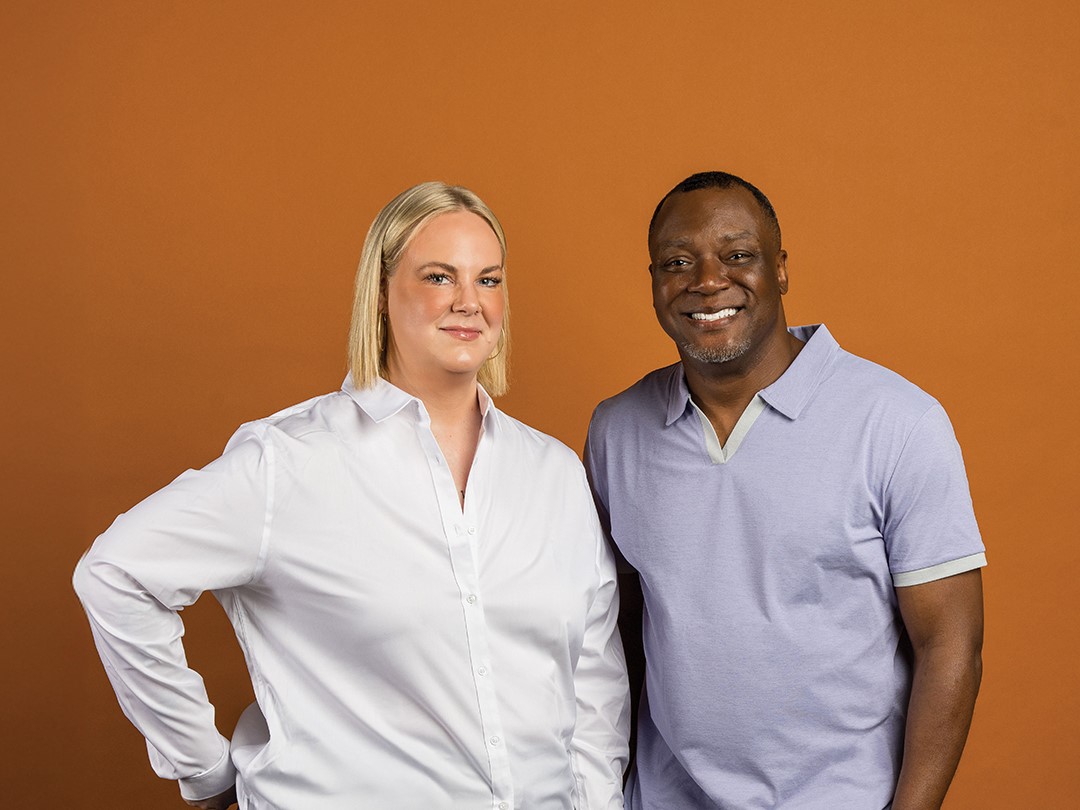
The Dettling Family. Photo: Nicole Dettling
A local family shares their story to fundraise for a cure.
When Lexi Dettling was 18 months old, her words started disappearing. “‘Happy’ was her favorite word,” Nicole Dettling, Lexi’s mother, says. “When I would ask her to repeat that word, ‘happy,’ she would look at me like a blank stare. She had no idea what I was asking.”
The Dettlings were alarmed by Lexi’s regression, and Nicole says she suspected that she could be on the autism spectrum or potentially have a neurological disorder. Specialists diagnosed Lexi with nonverbal autism when she was 3, which opened up resources for the Dettling family.
Nicole says the program at Fraser—a Minnesota-based healthcare provider and disability inclusion advocate—was a blessing for her family. “They’ve done a lot of speech and occupational therapy and physical therapy with [Lexi] because not only did she lose her words, she lost her cognitive ability,” Dettling says.
There were still many questions the Dettlings didn’t have answers to, but a genetic test in March brought them some clarity, along with more questions. Lexi was diagnosed with Rett syndrome. According to the International Rett Syndrome Foundation (IRSF), it is a rare genetic neurological disorder that affects one in 10,000 females and, even more rarely, males.
“Being a mom, you go and you Google,” Dettling says. She says that her research was life-changing. “Not only does it talk about loss of speech, but it talks about loss of purposeful use of hands, basically, loss of mobility, loss of muscle tone,” she says. Additional impairments can also include breathing issues, sleep disturbances, scoliosis and a slow rate of head growth.
“This is where we’re at,” Dettling says. “We’re just living in this world that I never even knew existed since March.”
The neurologist that tested Lexi directed the Dettlings to IRSF, which shares information and funds research regarding Rett syndrome. Dettling visited the site and registered to receive a Rett Syndrome Toolkit. “A huge box came to my door a week later, and it was thick,” she says. “It was just talking about what Rett syndrome is and what you can give to providers that may not know what this is.”
IRSF’s family and community engagement manager, Samantha Brant, connected Dettling with other families that are also navigating having a child diagnosed with Rett syndrome. It was through this network that she learned about the upcoming Strollathon.
IRSF’s Minnesota Strollathon is scheduled from 12:45–4 p.m. on October 6 at the Savage Environmental Learning Center. “There are over 20 families that are going to walk in it,” Dettling says. The Dettlings will be one such family setting out on the quartermile walk with the team name of Lexi’s Warriors.
Those interested in walking can register at rettssyndrome.org either as an individual or by joining a team. For those unable to join the walk, IRSF encourages team donations. “The nice thing is that a lot of companies may match someone’s donation,” Dettling says, noting there’s an option to ask employers to do so. “A lot of my friends did that and came to find out their companies matched.”
All funds raised go directly toward IRSF to empower families and accelerate research to cure Rett syndrome.
Rett syndrome Awareness Month
The International Rett Syndrome Foundation’s Strollathons this October are part of a larger campaign that looks to spread awareness and information about Rett syndrome. The foundation is calling for individuals to join in its Purple Out event on the weekend of October 18–20. More information can be found on its website.
International Rett Syndrome Foundation
513.874.3020
Facebook: International Rett Syndrome Foundation
Instagram: @rettsyndromeorg






















